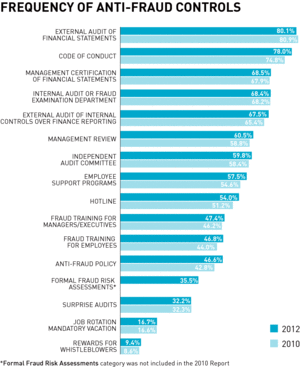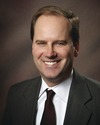

Business fraud is nothing new, but it is more prevalent in construction than in many other industries due to the great number of entities involved in most projects, says certified fraud examiner Wayne Kalayjian, a senior manager with Deloitte Financial Advisory Services in Los Angeles.
Fraud accounts for roughly 8% of U.S. GDP, according to the Association of Certified Fraud Examiners (ACFE). "So, if our GDP was about $16 trillion in 2012, then one could argue that fraud accounted for $1.3 trillion of that overall amount," Kalayjian says. "And since construction makes up 5% to 10% of our national GDP, then our industry conservatively absorbs about $65 billion in fraud-related schemes each year."
The average firm loses about 5% of its annual revenue to fraud, according to the ACFE's "2012 Report to the Nations." In construction, that could be a firm's total profit for a year, says Saura J. Sahu, a senior principal and fraud expert with the Detroit office of law firm Miller Canfield. He estimates the median loss for construction fraud at about $300,000 per case.
Any member of a construction team can be exposed to potential fraud, but general contractors are most susceptible because they work with so many parties whose actions they can't always control, says attorney Soni Mithani, a senior principal with Miller Canfield. "General contractors receive information from their subs and have to take much of it on faith," she says.
 |
| MAIBACH |
False Claims Act
The False Claims Act, created to punish those who intentionally defraud the federal government, has been amended several times since its inception 150 years ago. But firms should know that intent to commit fraud is not the main criteria for a false claim today, Mithani says. Construction fraud happens most often on inflated payment applications or lack of documentation and financial support. That alone may be enough to trigger liability if the false statement or fraud is key to receiving payment for a claim, she says.
Liability extends not only to projects owned or managed by the federal government but also to any projects receiving federal funds. For instance, fraudulent conduct on a state transportation project could give rise to False Claims Act liability if the job is even partially funded by federal dollars. "Courts are becoming more amenable to finding that even if nothing you specifically said in your pay application was false, you're basically telling [the government] that you're complying with all the details of the contract," Sahu explains. "General contractors are going to be held more liable than in the past for what their subs are doing; they must be more active and dig in a bit more."
Public joint ventures can be another source of fraud if you haven't done due diligence in learning about your partners' ethics and how they align with yours, Mithani says. She suggests structuring the joint venture with a clear separation of responsibilities and operations to avoid implications of bad conduct by the other firms. "One of our common practices when working in a new area is to look for a local contractor to partner with," Maibach says. Barton Malow has joint ventures abroad and realizes that what may be accepted practices for a local firm often may not be acceptable for a U.S. firm doing business in that country.
"We must go to the highest level of responsibility in those situations, know the rules of engagement and live by the highest expectations," he says.




Post a comment to this article
Report Abusive Comment